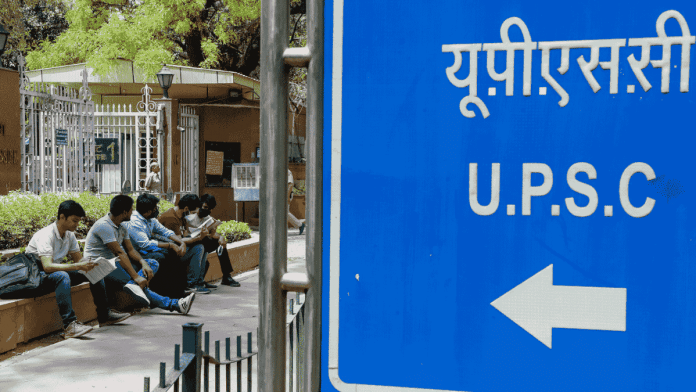Thank you dear subscribers, we are overwhelmed with your response.
Your Turn is a unique section from ThePrint featuring points of view from its subscribers. If you are a subscriber, have a point of view, please send it to us. If not, do subscribe here: https://theprint.in/subscribe/
Civil services are the most celebrated government job in India. The preparation deals with three stages namely: preliminary, mains and interview. Despite being one of the toughest exams across the globe, Indians still cherish it. Every year when the results are declared, coaching institutes all over India commemorate the success and reward the winners but what about those left behind?
Yearly, approximately 10,00,000 students apply for the exam. However, the overall pass percentage of candidates is only 0.2%. Going by the statistics in 2006, approx. 3 lakh students applied, 1 lakh appeared for the exams and only 1408 were filtered out for interview. In 2021, approx. 10 lakh students applied,5 lakh appeared for prelims of which only 761 got selected in the final list. This means that the number of applicants in more than a decade period grew by 3 times but the selection curve remained nearly linear.
If we consider the 2021 figures, only 10000 got selected at preliminary stage. This does not mean that only 10000 students were serious, this means that many serious candidates got sieved out due to hard luck at stage 1 itself and others at subsequent stages. Quite commonly we hear a term in Economy which is “Missing Middle Crisis” in India, I would like to name a similar dilemma in UPSC journey, which is “Missing Aspirants.” According to an estimate only 1 out of every 4 serious candidate gets selected in this race. Every 3 out of 4 is left behind with agony, under confidence and a broken heart. What do they do? Where they go? No one bothers to discuss their side of the story.
In developing countries like India every job has an era, there was an era of Engineering and MBBS in 20s. Today we see a boom of Gig economy. Creativity, innovation, and Entrepreneurship is hitting the nerve of every alternate Indian youth. But one such employment that has never lost its sheen is the Indian Administrative Services. After completing the basic graduation, several Indians start dreaming of LBSNAA. When they start the preparation, they are unaware of the struggles they are going to face. With every passing year of their preparation, they gain more experience, more knowledge but with it comes more societal pressure and more mockery. Among the serious aspirants who fail, there are two categories; one who have never seen a downfall in their entire educational journey except here and the other who have never excelled in their academics but now give their body, mind and soul to this preparation. After failure, both fall into the trap of self-doubt and become the first one to judge themselves.
Imagine yourself, placing your entire youth in a plate called UPSC. You leave weddings, parties, family functions and even your dear ones for this. While your friends in corporate jobs, work from Monday to Friday, you work for the whole week with hardly any breaks. And now, even after all these sacrifices, you still don’t get to eat the plate, how hungry would you feel? Sympathy phone calls will not work, “sab theek ho jayega” doesn’t work and “aage badho life me” will not soothe your heart. Thinking of a plan B when you never thought about anything else give goosebumps to you. You feel like standing at the end of a one-sided relationship.
28-year-old Blesson Puddu Chako died by suicide on 5 June last year in Nagpur, after failing to clear the UPSC exam.
What should be the solution? As per the Great Philosophy “Allegory of Caves” by Plato, even an enlightened man cannot simply go and direct the world to change. People won’t believe him. But change is possible, slowly and steadily. After every result, aspirants who don’t clear need “I am proud of you” more than the ones clearing the exam. Seeing the current trends of UPSC paper it is quite clear that the nature of the exam has become ambiguous. One’s capability cannot be judged by the result of a single exam. As a society, it is not sufficient to grow but to grow in the right direction.
If media houses, publications, coaching institutes start encouraging these students, we can give India a better future. Alternate options to civil services must be clearly stated in public platforms. Mental health discussions must be normalised. Meditation and counter therapy sessions must be promoted in coaching institutes where lakhs of students gather to gain knowledge. Only when profit making tendency will change to Gandhi’s trusteeship model and Ethical altruism, we will be able to counter this social trauma. We can bring back the minds who hide in shame and procrastination to participate in India’s dream of becoming 5 trillion Economy.
A simple step today, might create a beautiful future tomorrow.
These pieces are being published as they have been received – they have not been edited/fact-checked by ThePrint.


